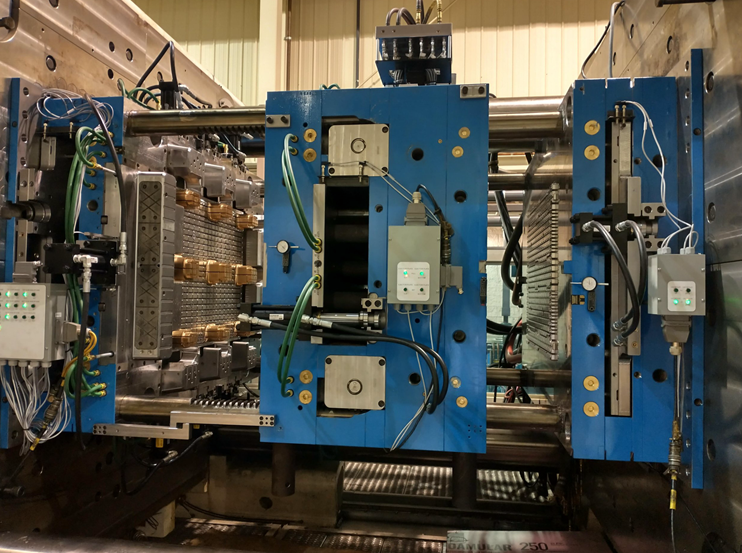Driving Efficiency and Precision: Injection Molding for Automotive Parts
Introduction
Injection molding has revolutionized the manufacturing industry, especially in the automotive sector. It is a manufacturing process that involves injecting molten material into a mold cavity, allowing it to cool and solidify into the desired shape. Injection molding offers several advantages over traditional manufacturing methods, such as cost-effectiveness, efficiency, and precision. This article will explore the use of injection molding for automotive parts and how it contributes to driving efficiency and precision in the industry.
Cost-effectiveness
One of the key advantages of injection molding for automotive parts is its cost-effectiveness. The process allows for high production volumes, reducing the per-unit cost. The automotive industry requires a large number of parts, and injection molding enables mass production, making it an ideal choice. Additionally, the use of molds in injection molding ensures consistency in part dimensions, eliminating the need for extensive post-production machining. This not only saves time but also reduces costs significantly.
Efficiency
Injection molding offers exceptional efficiency in the production of automotive parts. The process involves rapid cycling times, allowing for quick turnaround between each shot. This means that multiple parts can be produced within a short period, resulting in increased productivity. Moreover, injection molding equipment can be automated, further enhancing efficiency. Automation reduces the need for manual labor, lowers the risk of errors, and increases production output. The automotive industry relies heavily on efficiency to meet the demands of a large customer base, and injection molding provides the necessary speed and productivity.
Precision
Precision is crucial in the manufacturing of automotive parts, as even minor deviations can impact performance and safety. Injection molding ensures high levels of precision in part production. The molds used in the process are manufactured with extreme accuracy, guaranteeing consistent and accurate part dimensions. Additionally, injection molding allows for the use of complex designs and intricate details, which may be challenging to achieve with traditional manufacturing methods. The ability to create precise and intricate parts makes injection molding an excellent choice for the automotive industry.

Material Selection
Another advantage of injection molding for automotive parts is the wide range of materials that can be used. Different automotive components require specific material properties, such as strength, durability, and heat resistance. Injection molding allows for the use of various materials, including thermoplastics, thermosetting polymers, and elastomers, ensuring that the desired properties are met for each part. This versatility in material selection enhances the applicability of injection molding in the automotive industry.
Conclusion
Injection molding has become a driving force in the production of automotive parts, offering cost-effectiveness, efficiency, precision, and material versatility. Its ability to produce high volumes of parts quickly and consistently makes it an ideal choice for the automotive industry. Additionally, the precision and intricate details achievable through injection molding ensure that automotive components meet the required specifications. As the automotive industry continues to evolve, injection molding will play a crucial role in meeting the demands for efficient and precise automotive parts production.
Previous:Designing a High-Quality Plastic Bakery Crate Mould
Next: “Aerospace Molding Parts: Precision Engineering for High-Flying Performance”
-
China Industrial Molding Parts: Reliable and Precise Solutions for Your Business
2023-5-16
Industrial molding parts are an essential component of many manufacturing processes. Whether you are producing consumer ...
View details -
How do metal insert molds play a role in manufacturing?
2024-11-26
Metal insert molds play an important role in the manufacturing industry. They not only improve the production efficiency...
View details -
What are the advantages of plastic injection molding for automobile manufacturing
2022-12-29
Plastic injection molding continues to evolve with the advent of new technologies, and as it develops, new opportunities...
View details -
Designing the Perfect Plastic Crate Mould: A Comprehensive Guide
2023-9-20
Introduction Plastic crates have become an essential tool in various industries, including logistics, agriculture, and r...
View details -
Manufacturing a Round Plastic Pail Mould: Mastering the Art of Precision and Efficiency
2023-8-16
The manufacturing industry plays a critical role in the global economy, providing a wide range of products that are esse...
View details -
2024-11-28
In the vast field of industrial production, moulds play an important role. Among them, secondary moulds, as a special ty...
View details







